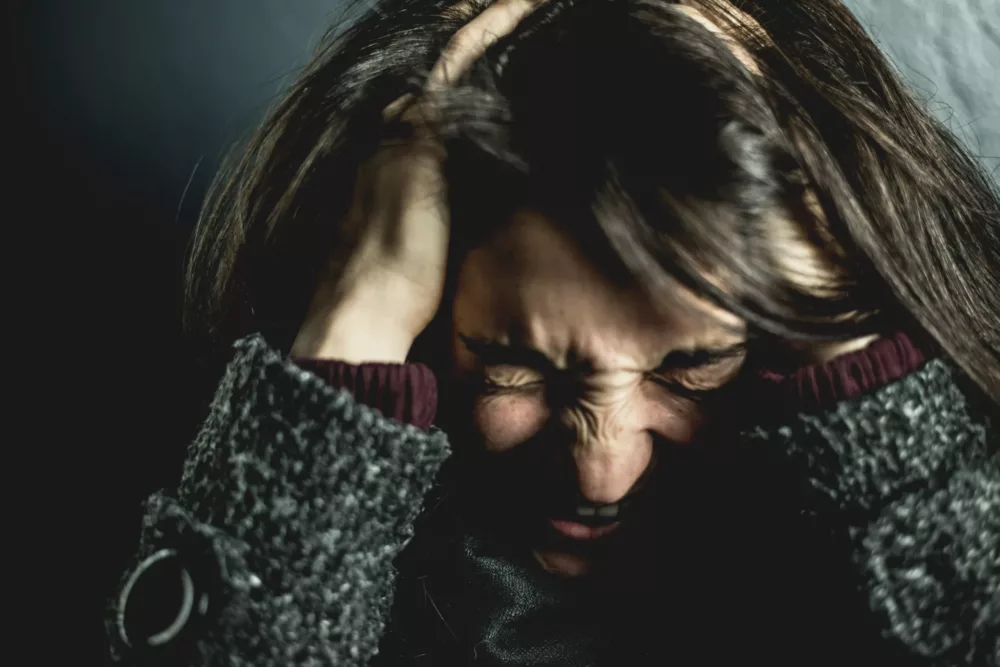We can all be proactive in protecting our health, but often, when we don’t feel well or we detect unusual symptoms, we’re reluctant to seek help. It’s tempting to ignore warning signs and hope that issues disappear or heal themselves, but this doesn’t always happen.
Leaving problems untreated can contribute to more advanced symptoms and it may also impact the prognosis if you have signs of an underlying condition. In this guide, we’ll highlight some important signs and symptoms you shouldn’t ignore.

Fatigue and unexplained tiredness
We all have days when we feel tired and lethargic, but usually, it’s possible to pinpoint a reason. It’s natural to feel exhausted if you have a baby, for example, or you’ve been traveling or you had a restless night. If you have signs of fatigue without there being an obvious cause, it’s wise to seek advice from a medical professional.
Unexplained tiredness can be a sign of many health issues from hormonal imbalances and anemia to cancer. It is highly likely that your symptoms won’t be a sign of anything severe or sinister, but it’s important to rule out potentially serious conditions and diseases.
If you experience sleep troubles on a regular basis, and this is the reason why you feel tired, use self-help techniques and consider scheduling an appointment with your doctor. Try establishing an evening routine, which allows you to relax and unwind before you go to bed, set yourself a bedtime and regular morning alarm and make sure your bedroom is quiet, dark and cool.
Try to avoid stress triggers. Frequent exercise can also help to reduce the risk of insomnia and improve sleep quality. If self-help methods don’t make a difference, see your doctor.
Abnormal swelling and lumps
In the vast majority of cases, swelling and lumps are nothing to worry about, but they can be symptomatic of cancer. If you feel a lump or you’re worried about inflammation that isn’t linked to an injury, seek urgent advice. Most lumps are benign or they turn out to be cysts or swelling that subsides without the need for treatment, but there is a risk that lumps can be a sign of cancer.
It’s best to get checked out to ensure the earliest possible diagnosis. In most cases, the earlier cancer is diagnosed, the higher the chances of survival. Lumps may be the only symptoms you notice, but often, there are additional signs to be aware of, including unexplained weight loss, fatigue, changes in your bowel habits and unusual leaking or discharge.
Changes in your mood
We often think about physical health when we talk about health, but mental health should also be a priority. It’s normal to experience a range of emotions and changes in your mood, particularly as life can be unpredictable and usually involves navigating highs and lows, but it’s important to be aware of potential warning signs.
If you feel like you’re not in control of your emotions, or you experience symptoms of depression or anxiety for prolonged periods, it’s crucial to get help. You should also seek advice if your symptoms get worse or you start to notice that your moods or emotions change, even in scenarios or situations where you would usually feel comfortable, relaxed or happy.
If you lose interest in seeing friends and family, for example, or you notice that you don’t get any joy out of things that usually cheer you up, this could be a sign of a mental health condition.
There are multiple reasons why people experience changes in their moods and behaviors. Mental health disorders can cause symptoms, but it’s also common to feel low due to hormonal changes in the body or life events, which are distressing or traumatic. Many people find that they feel low as they approach the menopause or they reach their 40s, 50s or 60s and this is often due to decreased hormone levels.
Hormone therapy can help to address imbalances and improve mental health and energy levels but it may not necessarily be the answer for everyone. Often, people experience signs of depression as a result of trauma or difficult events, such as a breakup, bereavement, an accident or losing their job.
In this case, it’s often beneficial to try to talk about how you feel and use treatments, such as counseling and talking therapies, to tackle symptoms. Taking medication may also be an option for some people.

Unintentional weight loss or gain
Many people strive for a Better Body by going on a diet or increasing their intake of food to try to lose or gain weight at some point in their lives. If you exercise to burn calories and reduce portion sizes and calorie intake, you will probably find that you lose weight. If you eat more and increase your calorie intake and you do exercises designed to build muscle mass and definition, you may gain weight.
There’s usually no reason to worry about changing numbers on the scale if you’ve made a concerted effort to either put weight on or drop a few pounds. If you notice that your clothes feel baggy or tight, or you weigh yourself and you’ve either gained or lost weight without intending to, it’s a good idea to speak to your doctor.
Changes in body weight can be linked to several factors, including lifestyle changes, changing hormone levels and stress, but they can also be a sign of potentially concerning health issues, including mental health disorders and some types of cancer.
Changes in your bowel habits
Have you started going to the toilet more frequently? Have you spotted blood in your urine or stools? Are you struggling to go to the toilet? Are you in pain? Changes in your bowel habits may be nothing to worry about, but it’s critical to get checked out as soon as possible if you experience repeat episodes of diarrhea or constipation, you detect traces of blood in your urine or feces or you find it uncomfortable to pass urine or stools.
There may be a simple explanation, such as changes in your diet or an adverse reaction to a specific type of food or allergen, but abnormal bowel habits can also be a symptom of some forms of cancer, including bowel cancer.
Recurring headaches
Headaches are one of the most common ailments. Most of us will experience at least one severe headache in our lives and some people get them weekly or monthly. Headaches usually disappear after taking painkillers or having a drink of water, but if they get worse or they become more frequent, it’s beneficial to seek advice. Dehydration is a common cause of headaches.
Some people may also experience headaches as a result of issues that affect their eyes, drinking too much alcohol, stress, hunger and common health problems, such as colds and flu. If you have very bad headaches, your headaches have become more regular or you have other symptoms, such as blurred vision, loss of consciousness or issues with your balance, see your doctor.
It’s also important to seek advice if you get headaches after an accident or injury. Problems with your vision, feeling tired and lethargic, increased sensitivity to light, and nausea and vomiting can indicate a concussion.

It’s not always possible to prevent health problems or avoid illnesses, and sometimes, there are no clear signs, but being aware of potentially dangerous symptoms can help you protect your health. If you don’t feel well, or you notice unusual signs and symptoms, it’s always best to seek advice and get checked out.
The earlier you reach out, the sooner a diagnosis can be ruled out or confirmed. Early diagnosis is key for optimum treatment outcomes.





Leave a Reply